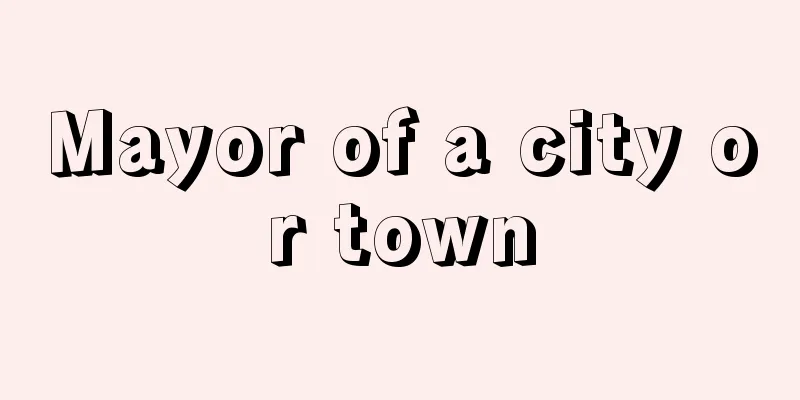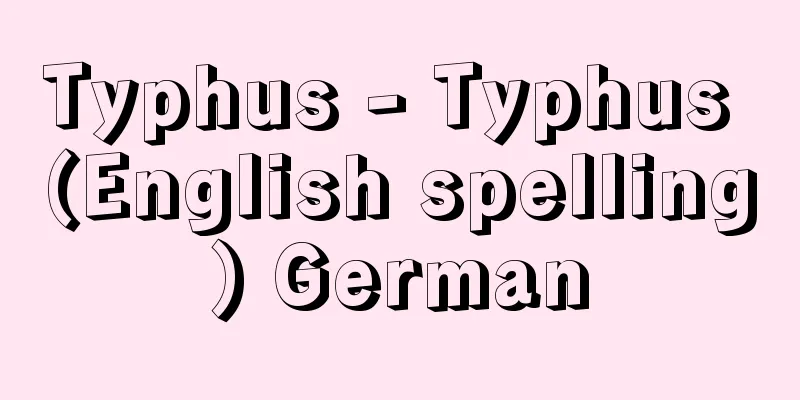Mayor of a city or town

|
The head of the executive body of a city, town, or village. It is elected directly by the residents (voters) of that city, town, or village (Article 93 of the Constitution, Article 17 of the Local Autonomy Law). Under the old system under the Meiji Constitution, mayors were supposed to be elected by the city, town, or village council, but under the Constitution of Japan, they are elected directly by the residents (public election). Japanese nationals over the age of 25 are eligible to be elected as mayors of cities, towns, or villages, except for those who fall under certain disqualifications (Articles 10 and 11 of the Public Offices Election Law). Mayors of cities, towns, or villages cannot simultaneously serve as members of the House of Representatives or House of Councilors, members of local assemblies, or full-time employees of local public organizations (Article 141 of the Local Autonomy Law), and are also prohibited from holding certain positions (Article 142 of the same Law). The term of office is four years (Article 140 of the same law), and may be dismissed for certain reasons (Article 143 of the same law), or may be dismissed by a request from residents (Article 81 et seq. of the same law), or by a vote of no confidence from the assembly (Article 178 of the same law). The mayor of a city, town or village is the executive body that governs and represents the city, town or village (Article 147 of the same law), and manages and executes the affairs of the city, town or village (Article 148 of the same law). The mayor of a city, town or village may enact rules concerning his/her authority, provided they do not violate laws and regulations (Article 15 of the same law), and may also have the power to appoint and dismiss employees (Article 172, paragraph 2 of the same law), the power to command and supervise employees (Article 154 of the same law), the power to revoke and suspend illegal actions of administrative agencies under his/her control (Article 154-2 of the same law), and the power to establish and organize administrative organizations (Articles 155, 156, and 158 of the same law). [Toshiro Fuka and Kengo Yamada] [Reference item] |Source: Shogakukan Encyclopedia Nipponica About Encyclopedia Nipponica Information | Legend |
|
市町村の長たる執行機関。その市町村内の住民(選挙人)により直接選挙される(憲法93条、地方自治法17条)。明治憲法下の旧制度においては、市町村長は市町村会が選挙するたてまえであったが、日本国憲法の下では住民の直接選挙による(公選)ことになった。日本国民で年齢25歳以上の者は、一定の欠格事項に該当する者を除き、市町村長の被選挙権をもつ(公職選挙法10条・11条)。市町村長は、衆議院議員または参議院議員、地方議会の議員および地方公共団体の常勤の職員などを兼ねることができず(地方自治法141条)、また一定の職につくことも禁止されている(同法142条)。任期は4年であり(同法140条)、一定の事由に該当すると失職するほか(同法143条)、住民の解職請求(同法81条以下)、議会の不信任議決などによって失職することがある(同法178条)。市町村長は、その市町村を統轄し代表する執行機関であり(同法147条)、市町村の事務を管理執行する(同法148条)。市町村長は、法令に違反しない限りにおいて、その権限に関し、規則を制定することができる(同法15条)ほか、職員の任免権(同法172条2項)、職員に対する指揮監督権(同法154条)、市町村長が管理する行政庁の処分が違法である場合にこれを取り消し停止する権限(同法154条の2)、事務組織を設置編成する権限(同法155条・156条・158条)などを有する。 [福家俊朗・山田健吾] [参照項目] |出典 小学館 日本大百科全書(ニッポニカ)日本大百科全書(ニッポニカ)について 情報 | 凡例 |
<<: Viewer ratings - Shichouritsu
>>: Municipal system - Shichosonsei
Recommend
Fernand Khnopff
1858‐1921 Belgian painter. Born in Grembergen near...
Chihō
A Neolithic to Bronze Age site near Ulanhad (Chif...
《Tutte l'opere d'architettura》 (English notation) Tutteloperedarchitettura
…An Italian architect of the late Renaissance. Au...
Version test
This is a test to check extroversion. The Swiss p...
Carlos Ibañez del Campo
1877‐1960 Chilean politician. Born in Linares. A m...
Gadira - Gadira
…Capital of the province of the same name in sout...
Robeco NV
The largest international investment trust company...
Mother and Child Care Association - Boshiaiikukai
Aiiku Foundation is an organization that aims to p...
Duncan
American female dancer. Born in San Francisco. She...
Nagisa Oshima
Film director. Born March 31, 1932 in Yoshida-cho...
Asphodelus tenuifolius (English spelling)
…[Tetsuichi Yahara]. … *Some of the terminology t...
verkitschen
...Therefore, it includes a sense of wonder and s...
Injunctive relief - right to injunction
Under civil law A right for a person whose rights...
Kusunuma Swamp
…Although part-time work is on the rise, the prop...
Kallistō (English spelling)
…Thus, although Artemis was eventually added to t...



![Abdülmecid [I] - Abdülmecid](/upload/images/67cf35df3bb60.webp)





